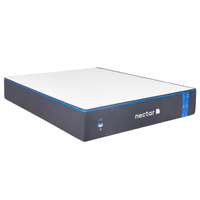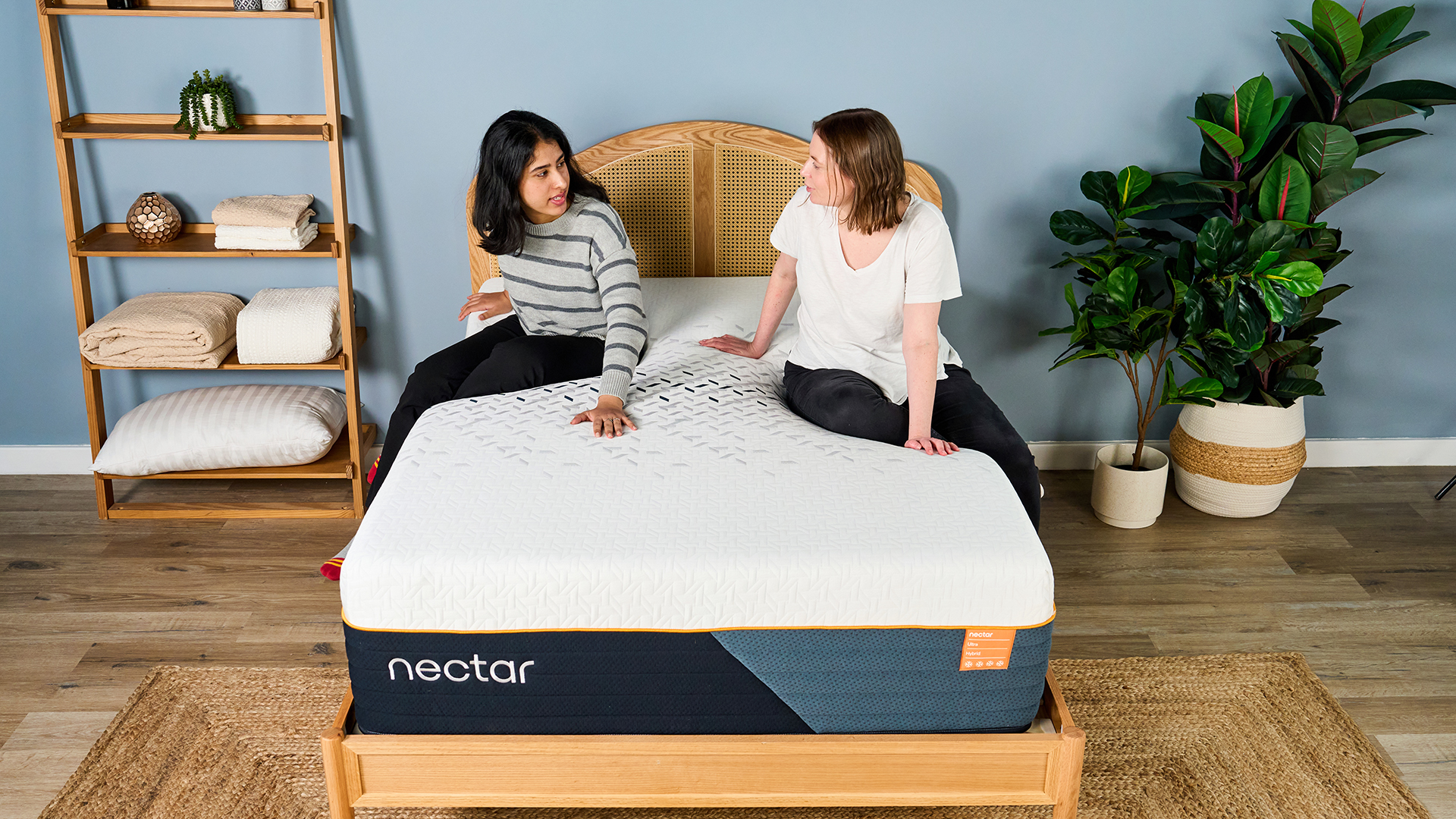5 ways an air purifier can help you fall asleep faster
Will an air purifier help you fall asleep faster? Yes — here's why
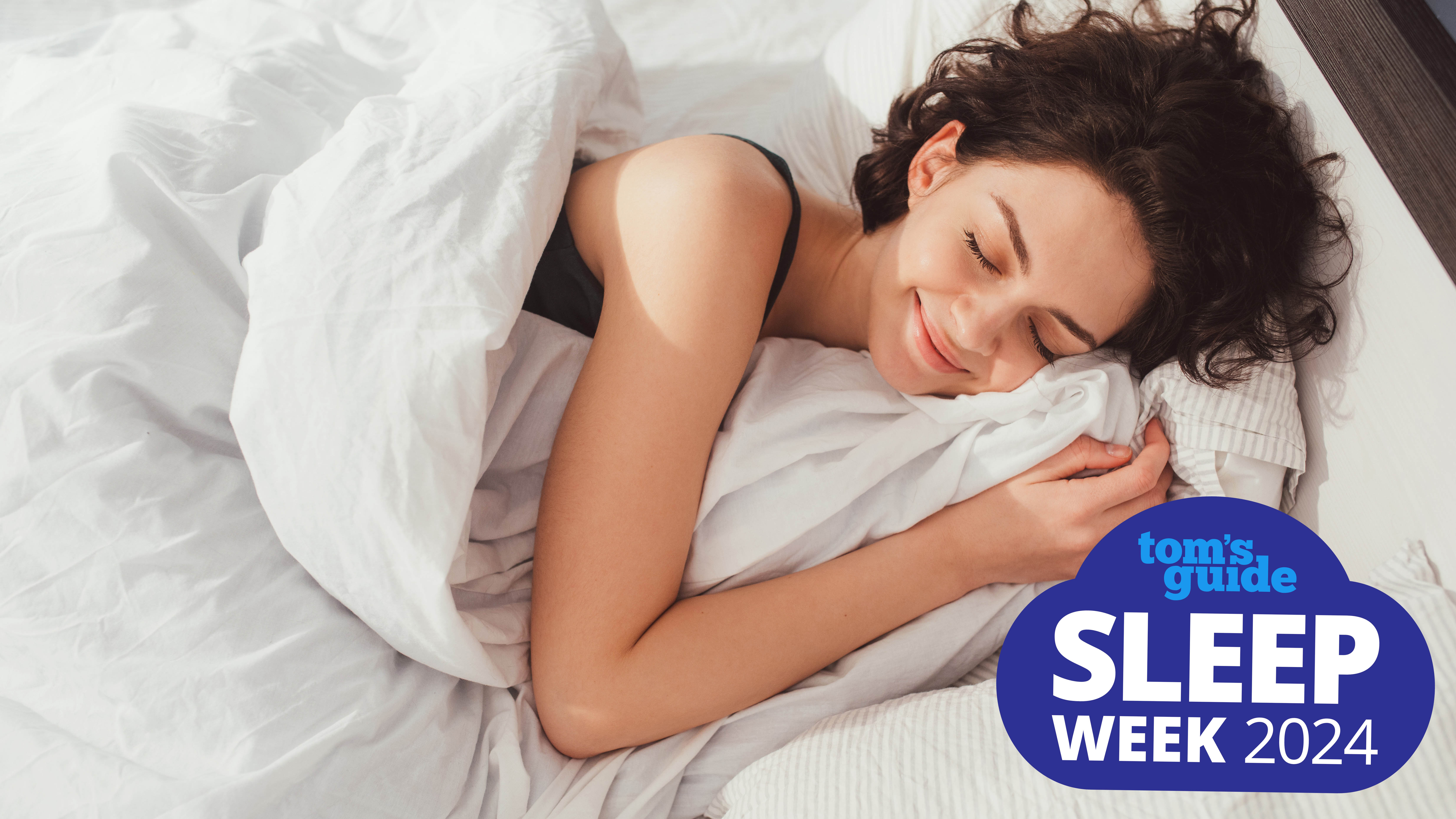
It’s always frustrating if you have trouble sleeping, or wake up feeling more exhausted than the night before. Not only does it affect our moods and overall day, but prolonged issues can have a long-term effect on our health.
Broken sleep can be caused by a number of things. These include feeling stressed, not having a sleep routine, eating/drinking before bedtime, our bedroom design, and of course, sleep disorders such as insomnia.
And despite investing in one of the best mattresses, best pillows for comfort, or even the best sleep apps, the solution to your sleep woes could be quite simple: a lack of clean air.
According to The Sleep Foundation , there is a direct link between clean air in your environment and quality of sleep. This is because pollutants in the air can trigger conditions such as asthma or lead to serious respiratory problems that can all have an impact on our sleep.
But can having one of the best air purifiers help us fall asleep faster? "Like other aspects of our health, the quality of the air we breathe can have a significant impact on our sleep" agrees James Wilson, a.k.a. The Sleep Geek. "The better the quality of the air we breathe, the more efficiently your body can work. Thus aiding our ability to fall asleep and stay asleep."
In addition, knowing how to reduce dust in your home, or vacuuming with one of the best vacuum cleaners can also help to improve air quality.
So if you want to get a good night’s slumber, here are the five ways an air purifier can help you fall asleep faster.
Sign up to get the BEST of Tom's Guide direct to your inbox.
Get instant access to breaking news, the hottest reviews, great deals and helpful tips.
1. Cleans air of pollutants
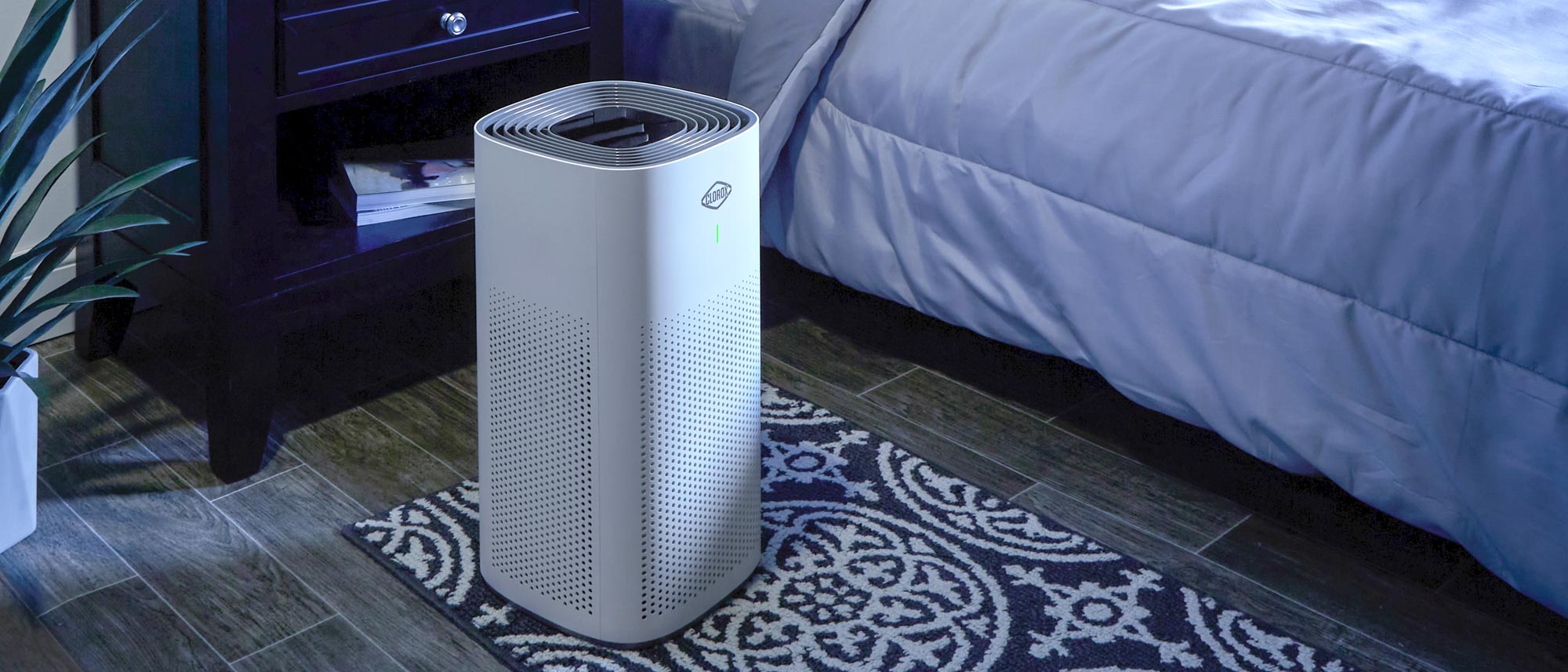
The best air purifiers are designed to filter out airborne pollutants, dust, pollen, and even viruses to vent out cleaner air. This should also increase ventilation around the home, making breathing easier.
"Pollutants and allergens can build up in any room in your home, including your bedroom," explained Claire Davies, Sleep Editor for Tom's Guide, and Certified Sleep Science Coach. "While opening your window each night before bed has the double bonus of cooling the room temperature for sleep and filtering out some of those pollutants, an air purifier is the best way to get rid of them."
"Dyson published a study in 2017 that showed how air purifiers are associated with better sleep outcomes, with respondents in the study increasing their sleep time by an average of 12 minutes per night when using an air purifier. The study didn’t look at the overall quality of sleep, but gaining more sleep per night in an air conditioned, well-ventilated room makes sense as there will be less pollutants and allergens to wake you from sleep."
Bear in mind that filtration performance differs between the various types of air purifiers, which is rated by its CADR (Clean Air Delivery Rate) for each model. This shows us the rate these machines can filter the air in a measured space.
Before buying a HEPA air purifier, it’s important to consider the size of your room and refer to the CADR for guidance on its performance. Find a model that can filter out specific pollutants to suit your home and needs (allergens, pet hair, dander etc), or other useful features. Some smart air purifiers display the live breakdown of the air quality to adjust automatically, and can be connected via an app to your smartphone.
To help you sleep faster, air purifiers are often placed in a corner of the bedroom to run quietly at night. And you’ll find many models will come with night modes for this exact purpose.
2. Reduces allergens
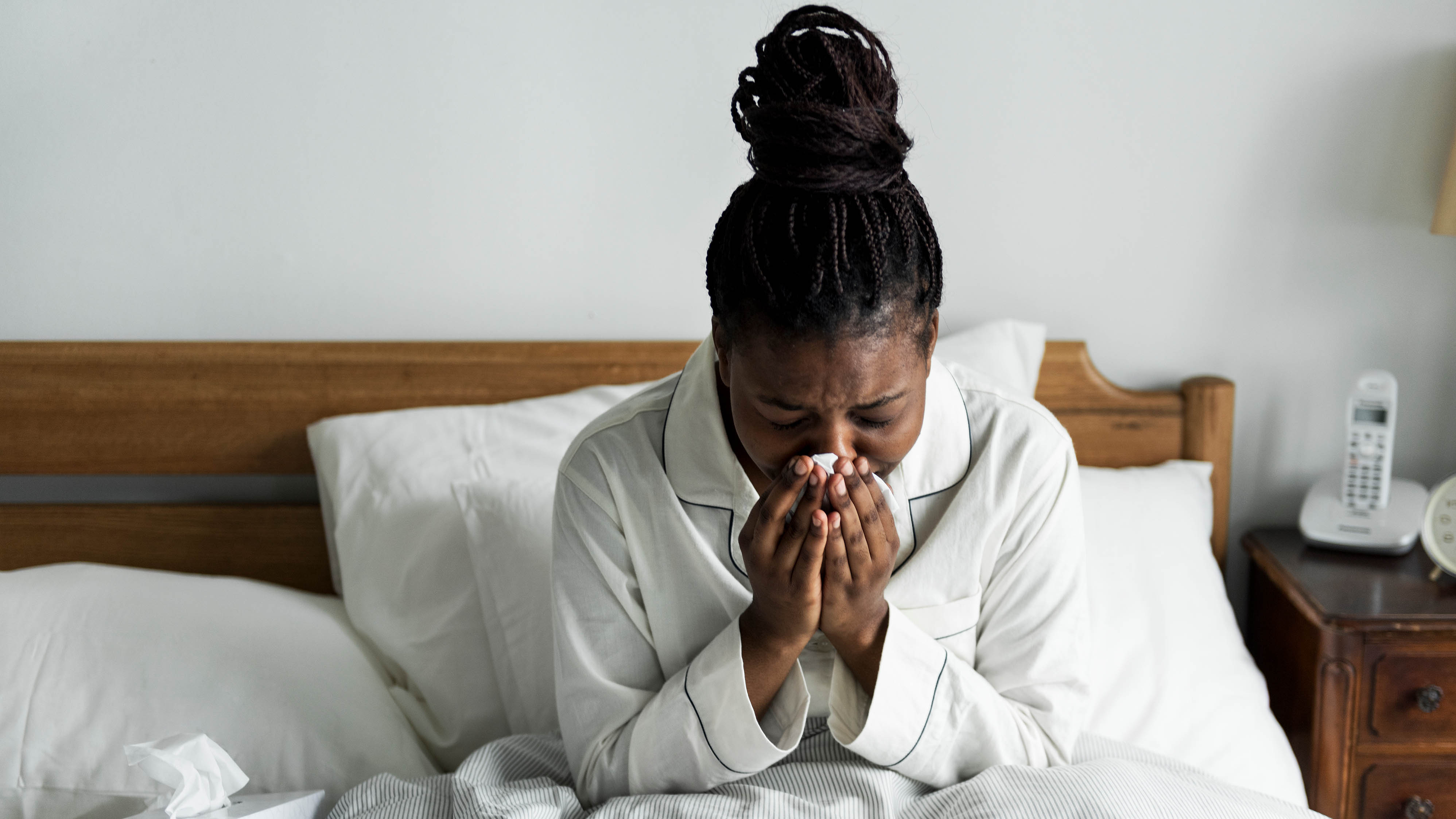
Another benefit of an air purifier is that it reduces allergens in the air, which could also be affecting your sleep. This is especially the case if your allergies keep you up at night, or you awake with an itchy throat or blocked nose.
"Air pollutants affect your sleep by triggering your allergies, which can make it harder for you to sleep comfortably as you’ll be prone to sneezing and an itchy eyes and nose," agrees Davies, "Some allergens and pollutants can make existing breathing conditions (such as asthma) worse, so purifying the air is important."
With broken sleep, this can also have a negative impact on how we feel the next day, making us feel rundown, tired or irritable.
“For people whose sleep is impacted by poor quality air, an air purifier could be a useful tool to improve sleep,” says Wilson. “If you have asthma, allergies, have pets in your room, or are prone to snoring you could try using one.”
If you want more handy advice, check out our tips for reducing allergens in your home.
Nectar Mattress: from $349 at Nectar Sleep
During Sleep Awareness Week, you can save up to 40% on a range of memory foam and hybrid mattresses at Nectar Sleep. We rate the Nectar Memory Foam as the best mattress for most sleepers with a smaller budget seeking a breathable and supportive all-foam bed to relieve pressure on joints, reducing aches and pains. A queen is now reduced to $649, with a lifetime warranty and a year's sleep trial.
3. Helps to reduce snoring
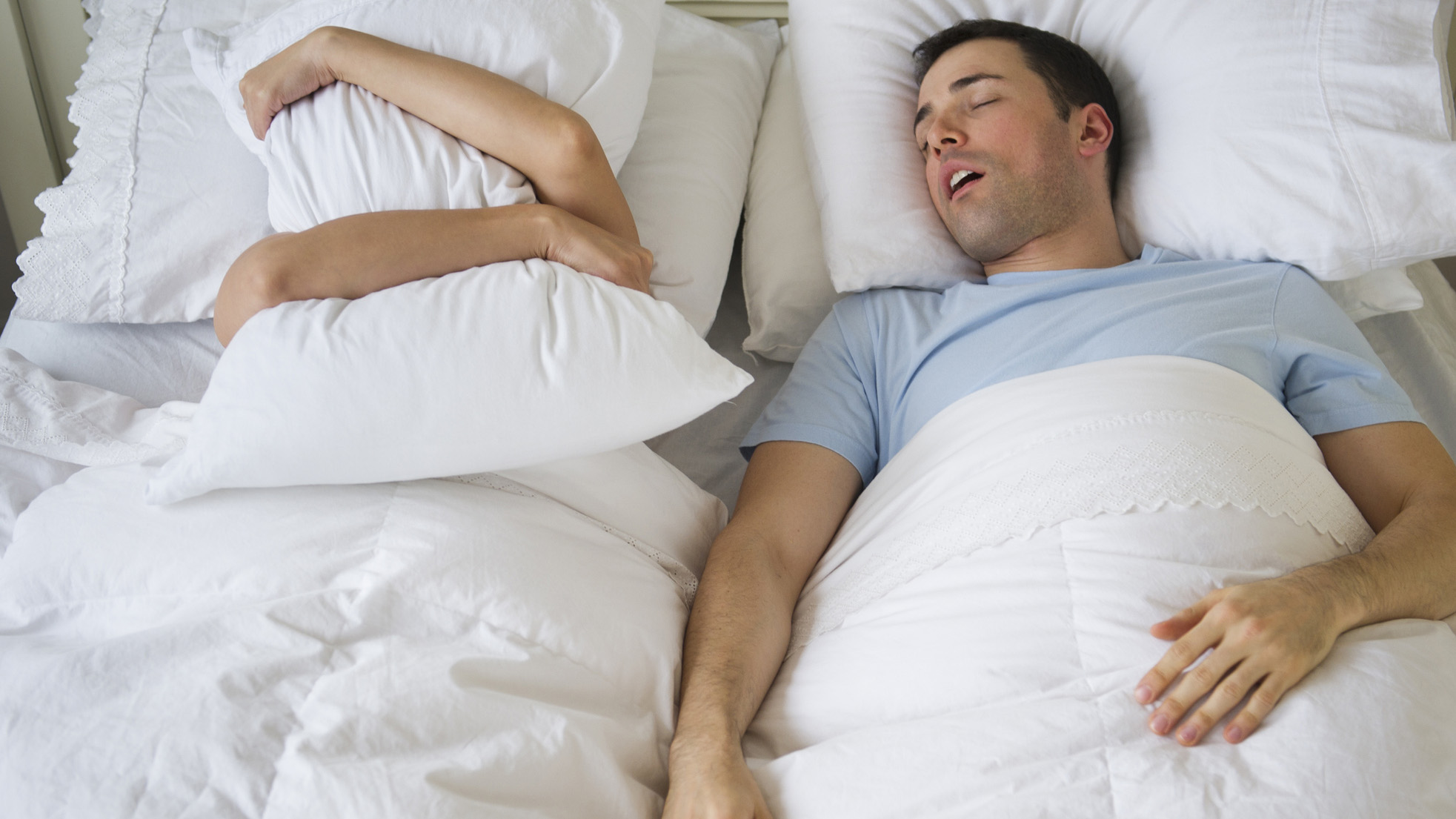
Snoring is a common issue that can be detrimental to sleep quality and health. Not only will it keep you up, but will keep your partner (or others in the household!), awake too.
And if you’ve tried everything to stop snoring, including the best sleep positions for snoring, or have even bought an anti-snore pillow, maybe all you need is clean air?
Essentially, snoring occurs when the flow of air through your mouth and nose is blocked, causing congestion. Air purifiers can help to reduce airborne allergens that trigger nasal congestion, inflammation and other symptoms. Clean, fresh air in a bedroom can help to keep these airways open, and should greatly reduce snoring as a result.
In any case, if long-term snoring has become the bane of your life, it's important to speak to your doctor for advice on your specific issues, and whether they need to be investigated further.
4. Reduces odors in the air
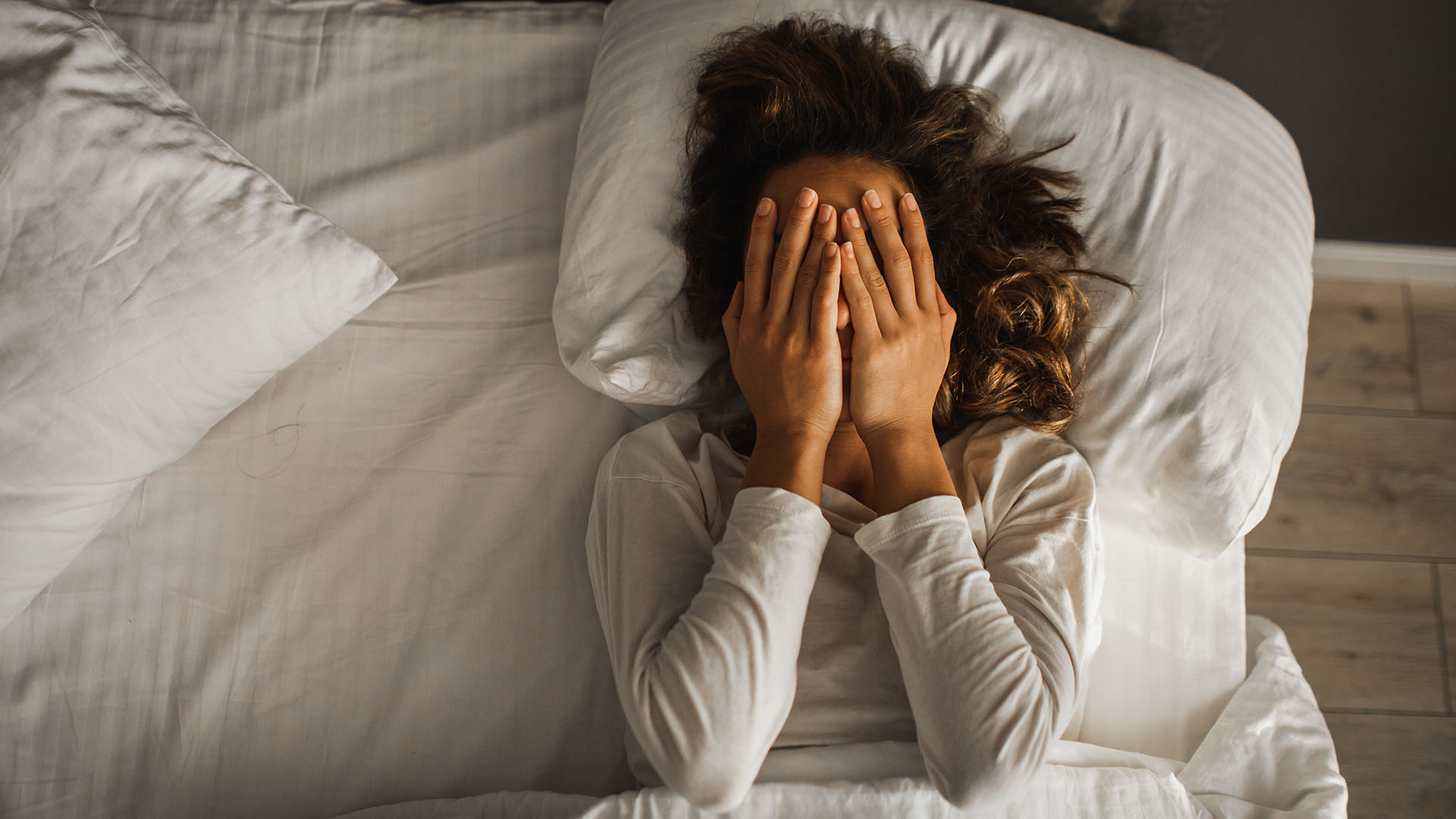
Did you know that smells can affect the quality of our sleep? According to The Sleep Foundation, there is a direct link between smell and sleep — with research showing that it does have an effect on how long it takes for us to fall asleep.
So how is this all related? Typically, our sense of smell is influenced by the circadian rhythm. These 24-hour, sleep–wake cycles help to promote sleeping during the night and alertness during the day, but it also affects our sensitivity to smell. And while our smell sensitivity fluctuates throughout the day, a lower sensitivity encourages sleep at night. An air purifier can reduce unpleasant odors in the bedroom that we could be sensitive to, and create a comfortable environment.
Alternatively, there are certain scents that are associated with promoting better sleep, and a calming environment. Studies have shown that essential oils including lavender, rose, jasmine and roman chamomile, all have calming properties, and can aid with sleep and relaxation.
5. Increases white noise
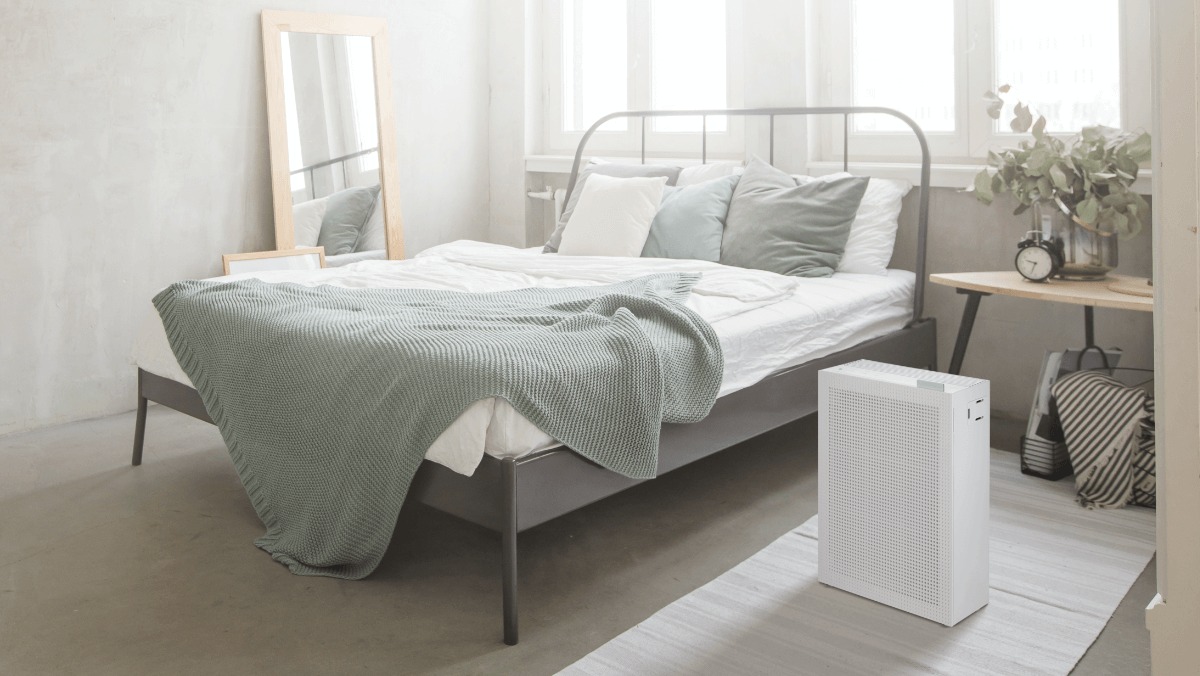
White noise is a term used to describe a mix of static frequencies that create a soothing sound. This ambient, white noise also masks other sounds, which makes it perfect for aiding sleep. This is also handy if you live in noisy environments, or have trouble falling asleep.
And if you haven’t already invested in one of the best white noise machines, running an air purifier in your bedroom can act as a white noise machine. “Some people find the white noise sound the purifier gives off comforting as they fall asleep,” says Wilson.
This is because the sound the purifier makes while blowing and circulating air can act as a soothing, sleep aid, and could help you fall asleep faster. What’s more, many air purifiers come with “sleep mode” options to help to create the soothing, bedroom environment.
More from Tom's Guide

As the Homes Content Editor, Cynthia Lawrence covers all things homes, interior decorating, and garden-related. She has a wealth of editorial experience testing the latest, ‘must-have’ home appliances, writing buying guides and the handy ‘how to’ features.
Her work has been published in various titles including, T3, Top Ten Reviews, Ideal Home, Real Homes, Livingetc. and House Beautiful, amongst many.
With a rather unhealthy obsession for all things homes and interiors, she also has an interior design blog for style inspiration and savvy storage solutions (get rid of that clutter!). When she’s not testing cool products, she’ll be searching online for more decor ideas to spruce up her family home or looking for a great bargain!

